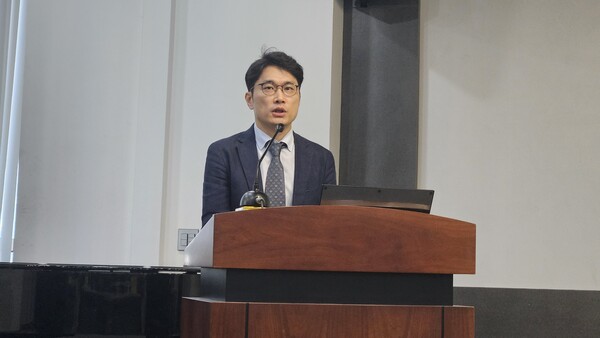Local diabetes experts from the Korean Diabetes Association (KDA) emphasized the urgent need for government support in diabetes education as the nation experiences a surge in diabetic patients due to Westernized eating habits and various other factors.

Speaking at the "2023 KDA Autumn Press Conference" held at the Korea Social Welfare Association Building on Wednesday, KDA members highlighted the constraints of diabetes education.
"Despite the proliferation of pharmaceutical treatments available for the increasing diabetic population, effective blood sugar management in Korea continues to pose significant challenges," said Professor Moon Jun-sung, KDA's general affairs director and doctor at Yeungnam University Medical Center. "Even with the development of efficacious medications and medical devices, a mere one-fifth of the country's diabetic patients have accessed diabetes education."
According to the National Health and Nutrition Examination Survey, only 20.3 percent of people with diabetes have received education on managing the condition, Moon added.
Individuals with diabetes require education not only about medications but also about lifestyle modifications, including exercise. Additionally, specialized management is essential for gestational diabetes, perioperative diabetes, and cancer patients with diabetes to maintain stable blood sugar levels.
Despite this fact, Moon explained that of 1,498 diabetic patients aged 30 and above who participated in the survey, only 305 had undergone educational programs.
The KDA pointed to the no reimbursement of educational counseling fees as a primary reason for this shortfall.
"While the educational counseling fees for other diseases are being reimbursed, diabetes education counseling fees remain uninsured," Moon said.
Moon elaborated that the KDA has persistently requested improvements from the government, but responses have been hesitant due to fiscal burdens coming from the swelling number of diabetic patients.
"The KDA also believes it is vital to increase the domestic distribution rate of the latest medical devices, such as automated insulin delivery devices," Moon said. "In comparison to Japan, where approximately 8,800 people utilize the latest automated insulin delivery, in Korea, usage is restricted, and only around 120 people use the device."
This difference is primarily attributed to the cumbersome procedures experienced by both medical personnel and patients.
"In addition, automated insulin delivery devices are classified as a medical expense, which prevents in-patient prescriptions, and the complicated procedures and billing methods result in low utilization rates," Moon said. "Also, there are no reimbursement criteria for pump consumables and no pump rental system like in Japan."
Also, Korea's low usage of the latest medical devices is due in part to policies that are not practitioner-friendly, he added.

